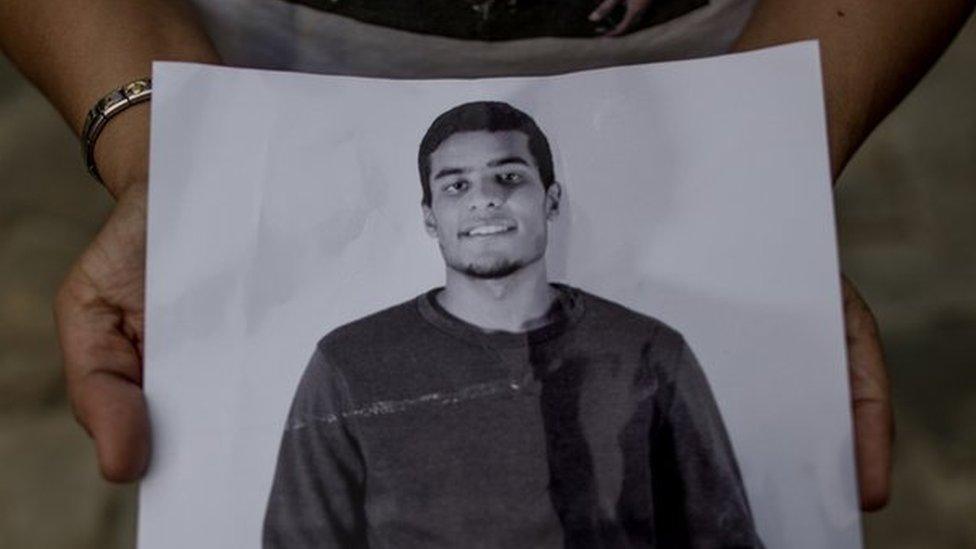Venezuela chief prosecutor Ortega's family 'threatened'
- Published

Masked youths attacked a building in the Chacao neighbourhood of Caracas on Monday
Venezuela's chief prosecutor Luisa Ortega says her family has been threatened and harassed.
Ms Ortega, once considered a firm ally of President Nicolás Maduro, has recently been openly critical of the government.
She opposes the government's decision to convene a constituent assembly and has criticised its handling of anti-government protests.
Governing party officials say she is a traitor and have questioned her sanity.
Ms Ortega told a Venezuelan radio station that "somebody is threatening my family".
"They harass them. They follow them, patrol cars that look like [the Venezuelan intelligence service] Sebin," she said.
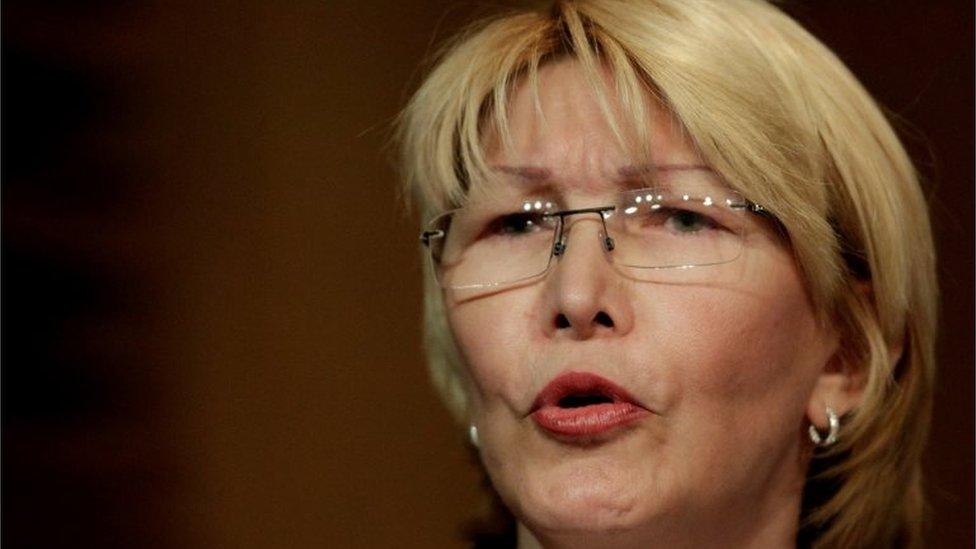
Luisa Ortega said members of her family had received threatening phone calls
She said that if something were to happen to a member of her family, she would hold the government responsible.
Ms Ortega first broke rank with the government in March when she said that a Supreme Court ruling stripping the opposition-controlled National Assembly of its powers had broken the law.
Last week she filed a challenge at the Supreme Court arguing that the citizen's assembly President Maduro has convened to rewrite the constitution was undemocratic and did not comply with the necessary legal requirements.
The Supreme Court rejected her challenge on Monday, arguing it was "inadmissible" and "inept".
The ruling triggered clashes between the security forces and anti-government protesters.
A group of masked demonstrators attacked a judicial building with stones and petrol bombs in the opposition stronghold of Chacao in the capital, Caracas.
A bank in the same building was vandalised, looted and set alight. A kindergarten had to be evacuated when the ministry of housing was attacked.
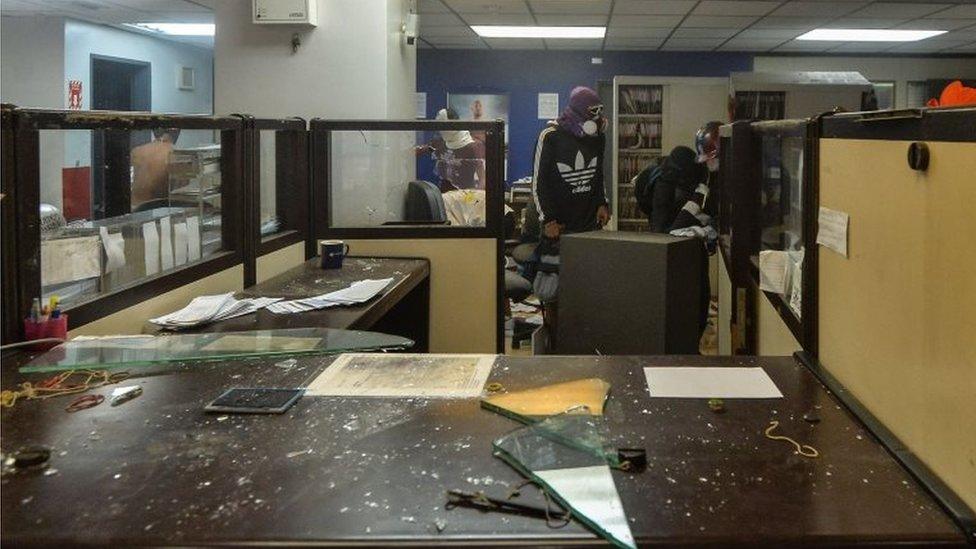
Masked demonstrators vandalised and looted a Provincial Bank branch
Twenty-four people were arrested in Chacao. Interior Minister Néstor Reverol described them as "delinquents hired by the terrorist right".
Opposition activists alleged the vandalism had been carried out by "government infiltrators" to make the opposition look bad and questioned why the police were unable to stop it.
There have been almost daily anti-government protests since 1 April, with many of them descending into violence as protesters and security forces clash.
More than 60 people have been killed in protest-related violence.
- Published12 June 2017
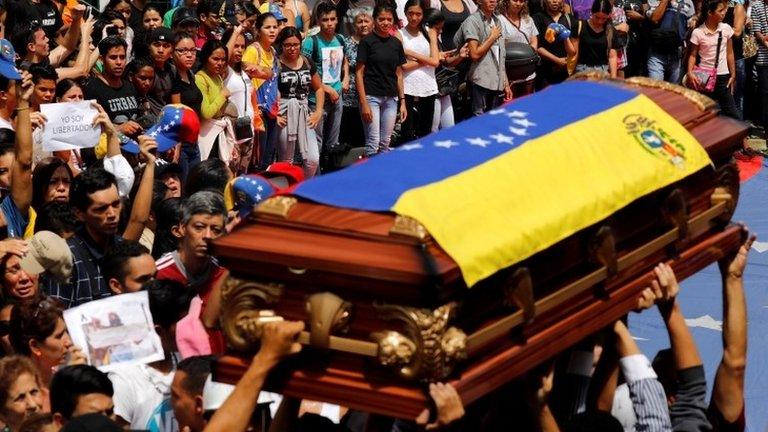
- Published12 June 2017
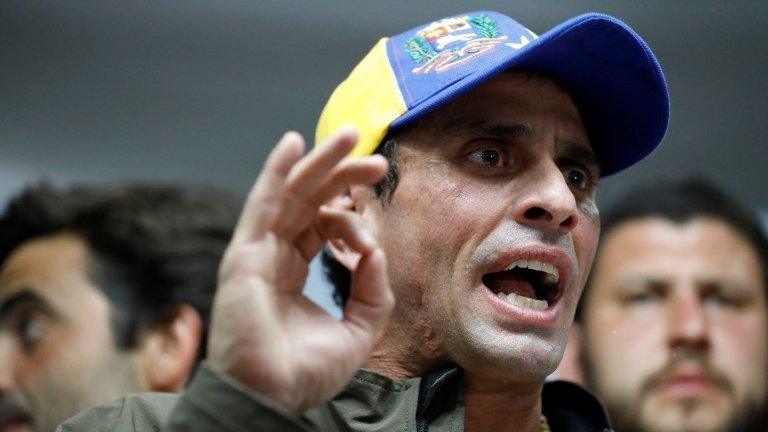
- Published8 June 2017
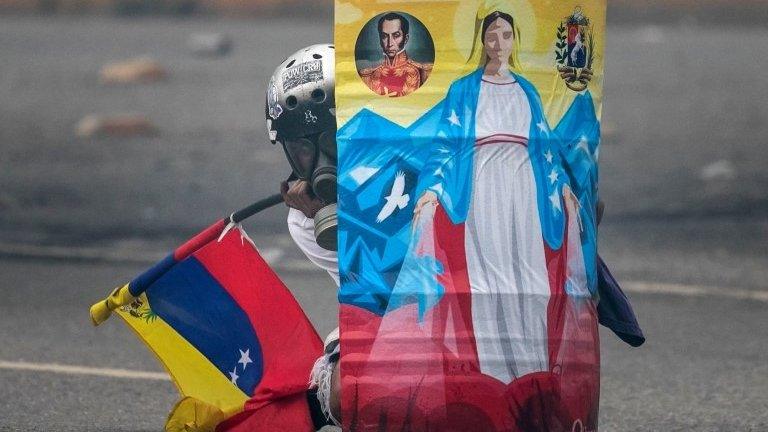
- Published22 May 2017
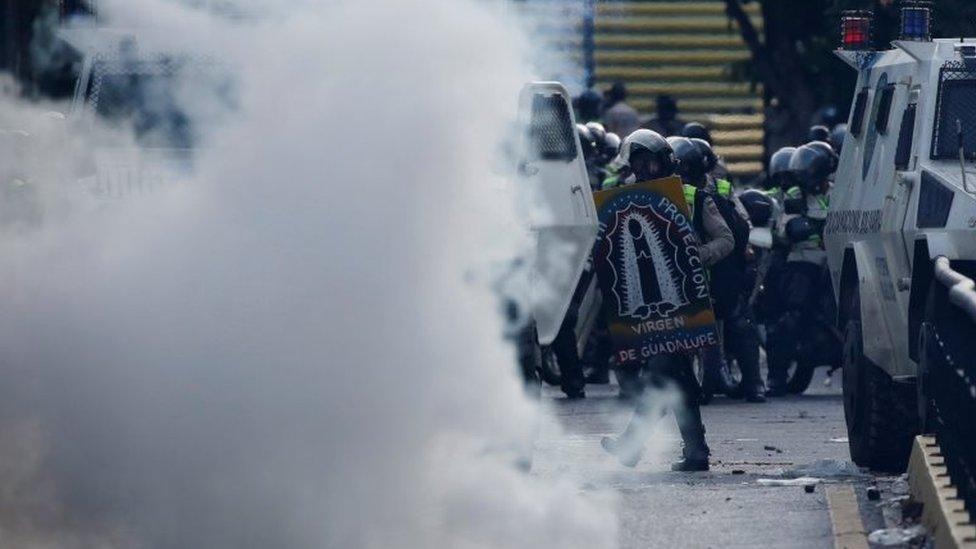
- Published24 May 2017
